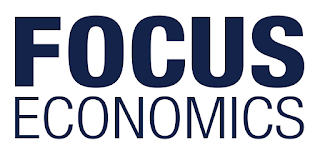Despite a confirmed rebound in economic activity in the fourth quarter of last year, available data suggests that growth was weak in the first quarter of 2019. The average manufacturing PMI hit an over two-year low in Q1, as nominal exports contracted for the third consecutive month in February amid an economic slowdown in China. Moreover, consumer confidence deteriorated markedly at the outset of the year, which does not bode well for private consumption this year, while machinery orders—a leading indicator for investment in the coming three to six months—contracted for the third period in a row in January. In light of recent developments, the government downgraded its assessment of the economy for the first time in three years on 20 March. This could prompt Prime Minister Shinzo Abe to take action ahead of the election in the upper house, which is to be held this July.
Front Loaded consumer spending ahead of the planned sales tax hike in October and a recovery in gross fixed investment—partially due to works related to the Tokyo 2020 Olympic Games—will shore up economic growth this year. On the downside, the economy will feel the pinch of weak global demand, especially from China and Europe. FocusEconomics panelists see the economy growing 0.8% in 2019, which is down 0.1 percentage points from last month’s forecast, and 0.6% in 2020. • Inflation stabilized at January’s 0.2% in February, well below the Bank of Japan’s (BoJ) inflation target of 2.0%. Inflation should pick-up further down the road, although it will remain well below the Bank’s target. Against this backdrop, government officials and a banking lobby criticized the target and vowed for a more flexible approach. FocusEconomics panelists expect inflation to average 0.9% in 2019, down 0.1 percentage points from last month’s estimate, before reaching 1.3% in 2020.
The BoJ left its monetary policy steady at the 14–15 March meeting on subdued price pressures. Governor Haruhiko Kuroda downgraded his view on the Japanese economy on weak global demand impacting the country’s all-important external sector. However, he stated that the domestic economy will remain robust, which should support core inflation. A majority of FocusEconomics panelists expect the BoJ’s short term policy rate to remain unchanged at minus 0.10% until at least the end of 2020.
The yen was broadly stable against the USD in recent weeks on hopes that China and the United States were close to reaching a trade deal, along with signs that Japan’s ultra-loose monetary policy will remain in place for the foreseeable future. On 22 March, the currency traded at JPY 109.9 per USD, a 0.7% appreciation compared to the same day in February. Panelists see the yen trading at JPY 108.3 per USD at the end of 2019 and at JPY 106.7 per USD by the end of 2020.
Consumer sentiment declined from 41.9 in January to 41.5 in February, marking the lowest reading since December 2016. The print disappointed market expectations of a softer fall to 41.6. The consumer confidence index measures consumers’ expectations for the next six months on a scale of 0–100; a figure of 100 indicates that all respondents see their living standards improving. Consumers were noticeably more pessimistic about their overall livelihood category and their willingness to buy durable goods. Households confidence about their income growth waned somewhat. Conversely, job prospects improved in February. Regarding prices, expectations of higher prices rose slightly in February, with 86.0% of respondents expecting prices to trend higher (up 1.9 percentage points from last month’s survey). FocusEconomics Consensus Forecast panelists expect private consumption to rise 1.0% in 2019, which is unchanged from last month’s forecast. In 2020, the panel sees private consumption growing 0.2%.
The core consumer price index rose 0.2% in month-on-month seasonally adjusted terms in February, matching January’s result. Core inflation inched down from January’s 0.8% to 0.7% in February. The reading was a notch below the 0.8% that market analysts had expected. Nevertheless, inflation remained well below the Bank of Japan’s inflation target of 2.0%. Overall inflation stabilized at January’s 0.2% in February. Core inflation in the Ku-area of Tokyo rose from January’s 1.1% to 1.2% in February. Data for March will be released on 29 March. The median inflation forecast among BoJ members is 1.1% for FY 2019 and 1.5% for FY 2020, including the effects of the consumption tax hike. FocusEconomics Consensus Forecast panelists expect inflation of 0.9% in calendar year 2019, which is down 0.1 percentage points from last month’s estimate. In 2020, the panel sees inflation at 1.3%.


